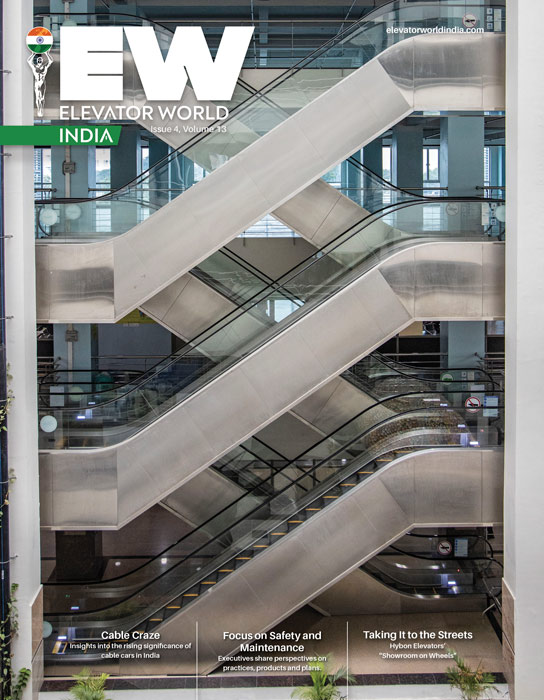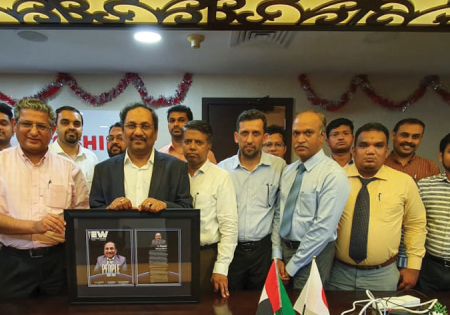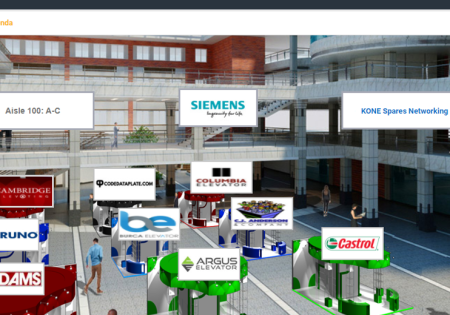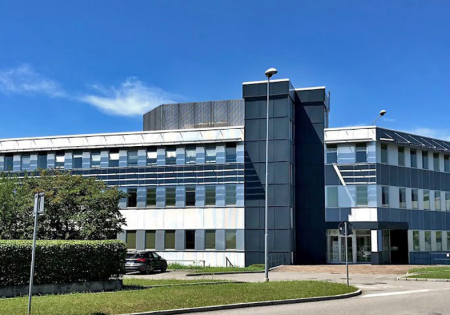KONE and Technology
Dec 1, 2020
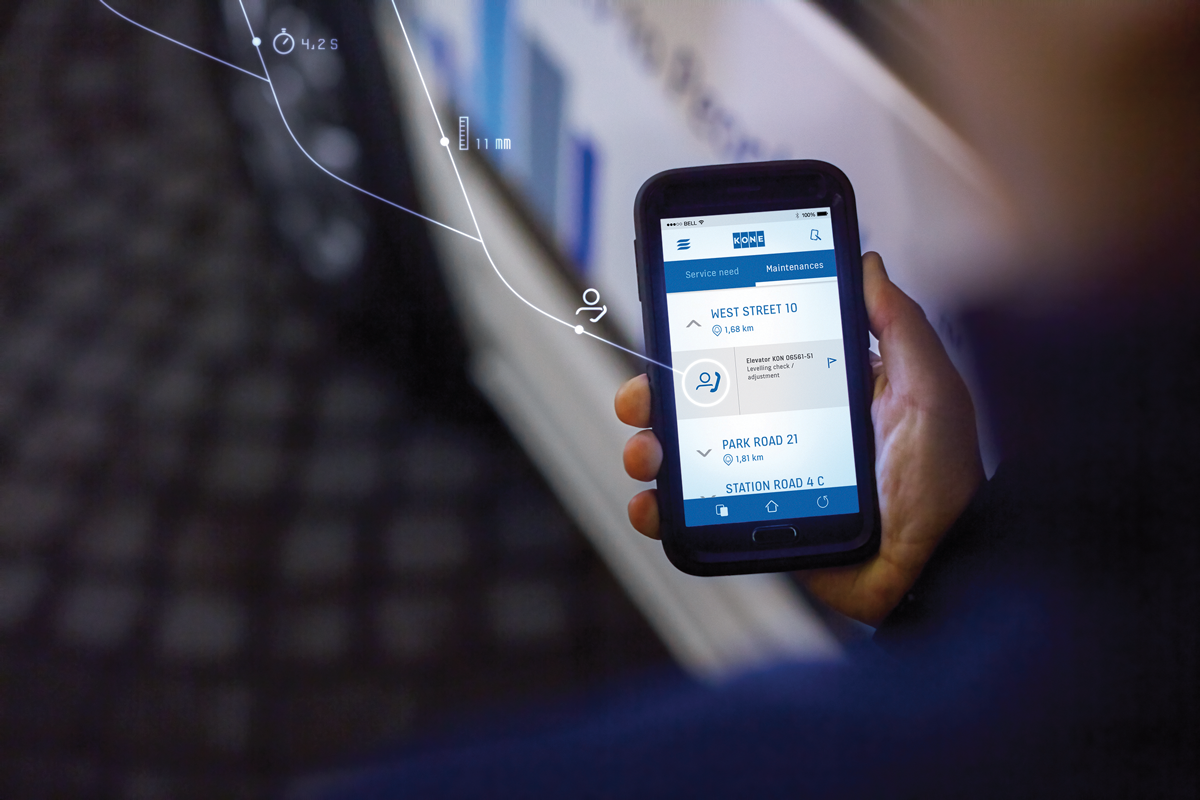
Perspectives on safety and maintenance
The vertical-transportation (VT) industry is rapidly making strong strides in technological development to ensure the utmost safety, ride comfort, improved building lifecycle and peace of mind for the customer. Innovation is key to sustain the future, and technological disruptions are imperative. Another important factor to consider is digitalization. Digital services help collaboration efforts with customers and partners. An additional aspect of digitalization is the potential to improve speed and efficiency in R&D and manufacturing units. This helps bring innovations not only faster to the market, but also closer to customers.
Regulation
Construction, maintenance and safety when working on lifts are regulated by the lift acts and rules made in certain states. Every state’s lift act defines the procedures, fee structure and timelines for obtaining various permissions for lifts and escalators within that state. In addition, Indian Standards have been prescribed for elevators defining the types, recommended dimensions, technical specifications and methods of testing. These also prescribe the code of practice for installation, operation and maintenance of passenger, goods and service lifts. Given the relevance of vertical mobility in today’s urban environment, there is rising concern regarding safety and regulations for elevator installation. This calls for the Lift Regulation Act to be made mandatory.
There is no national policy that enforces strict safety standards regarding the design, construction and installation of elevators. The primary challenge being faced by the industry in India is the contradictory applicability of safety codes across the country. Over time, organized players have defined and implemented stringent codes to help ensure the safety of their products and to ensure VT is maintained and inspected according to the respective codes. It’s time that the government brings uniform guidelines across the country for the safety norms to be followed by the elevator and escalator manufacturers.
Technology
In these unprecedented times, technology has been transforming the industry to make built environments healthier. The Internet of Things (IoT) has helped in the remote monitoring of VT. Such connected technology works by alerting on faults when they appear or are about to develop, enabling lift operators to save money and time on repairs. Furthermore, intuitive elevator technologies allow smart grouping and destination-based models with modern aesthetics. Smart grouping technology organizes commuters by grouping them based on their floor/zone preferences, which results in faster and better-organized results.
KONE’s 24/7 Connected Services uses the IBM Watson IoT platform to process data from elevator monitoring devices in the cloud, analyzing and predicting equipment problems before they occur to allow maintenance to be carried out in a planned fashion with minimal disruption. This platform offers round-the-clock monitoring and is designed to result in fewer faults, faster repairs and peace of mind for the customer.
Given the relevance of vertical mobility in today’s urban environment, there is a rising concern regarding safety and regulations for elevator installation. This calls for the Lift Regulation Act to be made mandatory.
Maintenance
Elevators have become an integral part of our lives today, making VT easier, smoother, and safer. As VT requires consistent maintenance and upgrades, while elevator maintenance can be provided by manufacturers, installation companies or independents, we believe it is important that maintenance is done by the manufacturer, as the OEM understands its equipment best. This can reduce overall downtime for repairs.
Safety at KONE
Efficient vertical mobility is a critical component of high-rise buildings. Though the elevator is one of the safest forms of transportation, it is important to ensure the equipment meets all safety standards and that maintenance of it is done regularly. At KONE, safety is one of the highest-priority areas, and our equipment is designed to both maximize passenger safety and enable easy inspection. We strive to clearly communicate our safety policies to all parties involved and conduct risk assessments and regular safety audits at every project stage.
KONE Care™ is designed to detect issues before problems arise, which reduces hazards and prevents accidents. It incorporates KONE Modular Based Maintenance, in which cloud-connected elevators, escalators and automatic doors provide a constant stream of usage data that helps us make intelligent, proactive decisions on how to solve potential problems before they cause disruption. The goal is less equipment downtime, fewer faults and detailed information on maintenance work. Users can enjoy less waiting time and more personalized experiences. The system enables vast amounts of data from elevator sensors to be monitored, analyzed and displayed in real time in the interest of improving equipment performance, reliability and safety.
Spurred by a mindset of technology and technical expertise, KONE strives to create solutions that will encourage physical distancing, while enabling safety. Our cloud-based Elevator Call allows one to call an elevator using WhatsApp, eliminating the need to touch possibly contaminated buttons or displays, and the KONE Handrail Sanitizer uses UV light to disinfect escalator handrails. Continuous chemical-free cleaning happens inside the escalator without putting passengers at risk.
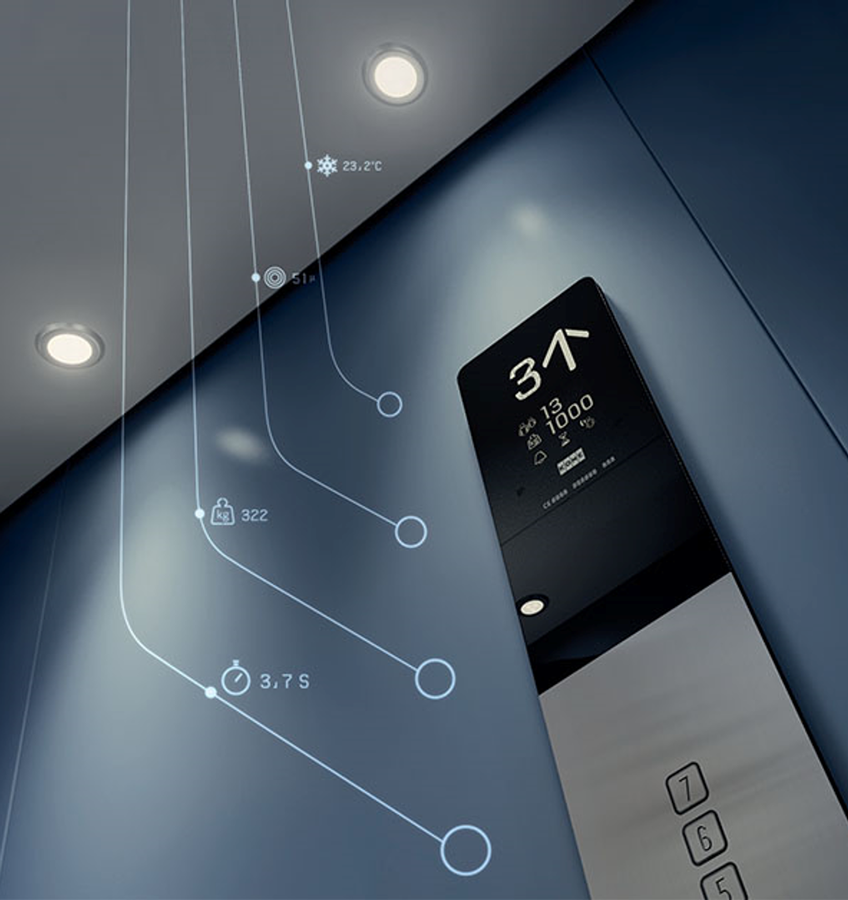
Get more of Elevator World. Sign up for our free e-newsletter.

